Modern Love Unfiltered: Series 22
Why is it so hard to let go—even when you know the relationship isn’t good for you? In Modern Love Unfiltered: Series 22, we explore the psychological, emotional, and spiritual difference between love and attachment. This eye-opening post breaks down the neuroscience of emotional dependency, the illusion of “forever” we create in our minds, and how to know when you’re in love—or just trauma-bonded. With support from psychology research, attachment theory, and biblical insights, Sofia Winters guides you through the journey of detaching without losing yourself. This read is for anyone still stuck on someone who wasn’t healthy, still checking their social media, or wondering why goodbye doesn’t feel like closure. Learn how to love without losing your peace—and how to finally walk away without guilt. #IsItLoveOrAttachment #EmotionalDependency #LetGoWithGrace #ModernLoveUnfiltered #AttachmentStyleHealing #FaithAndPsychology #SofiaWintersWrites #LoveWithoutFear #KnowTheDifference
RELATIONSHIP LOVE SERIES
Sofia Winters
6/1/20254 min read


Is It Love or Just Attachment? Why You're Still Holding On
Case Study: When It’s the Fantasy We’re In Love With
Take “Rachel,” a 34-year-old counselor who spent five years in an emotionally unavailable relationship. “I kept saying he was ‘almost there,’” she told her therapist. “If I just stayed a bit longer, he might finally be ready.” She wasn’t in love with who he was—she was in love with who she imagined he could become.
This is a form of emotional projection. We cling to the potential, even as the reality slowly erodes us. Rachel’s story is common—many people stay not because the love is strong, but because the hope is.
The Emotional Tug You Can’t Explain
Let’s start here: why does it feel impossible to move on from someone—even when you know they’re not right for you?
You're not desperate. You're not weak. You’re attached. That overwhelming desire to stay, that mental loop replaying the good times, the way your heart drops when they don’t text back—it’s not just about them. It’s about how they made your nervous system feel regulated… temporarily.
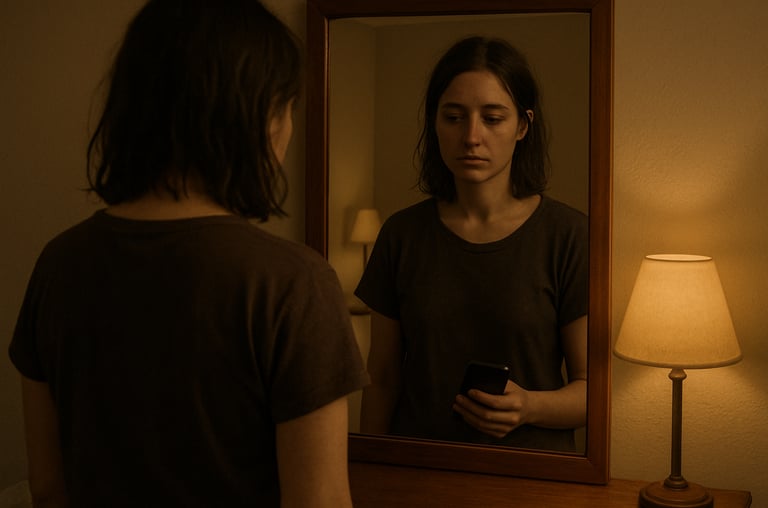

Love or Addiction? How Your Brain Gets Hooked
Attachment isn’t just emotional—it’s biological. Studies show that love activates the same brain pathways as addiction. When you're with someone inconsistent—loving one moment and distant the next—your brain releases dopamine in spikes, reinforcing the high of their validation and the crash of their withdrawal.
According to Dr. Amir Levine and Rachel Heller, authors of Attached, this push-pull dynamic often mimics early experiences with caregivers. We subconsciously reenact those dynamics in adult relationships, not because we want to suffer—but because it feels “normal” to chase love.
📚 Citation:
Levine, A., & Heller, R. (2010). Attached: The New Science of Adult Attachment and How It Can Help You Find—and Keep—Love.
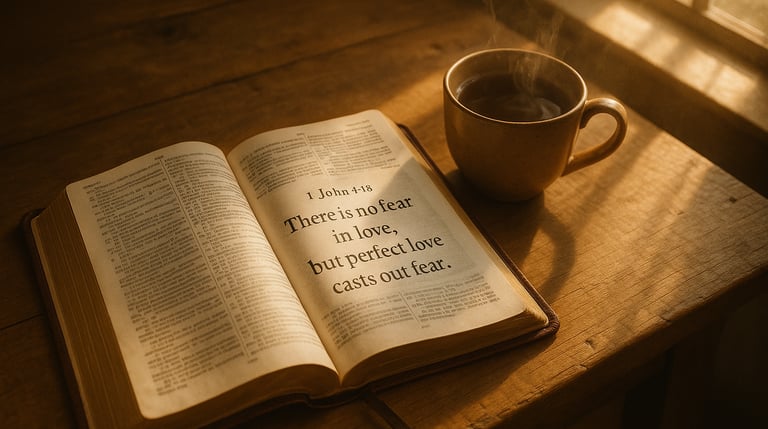




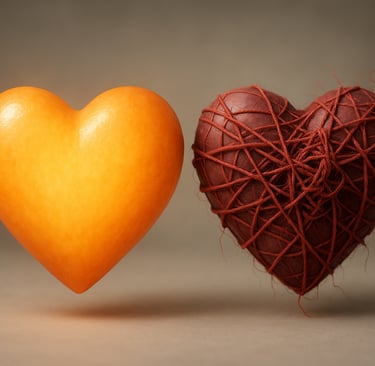
Attachment Red Flags You Might Be Mistaking for “Chemistry”
When you’re attached, not truly in love, your emotional compass tends to misfire. You might be mistaking anxiety for excitement, or longing for love. Here are some common red flags:
You feel anxious unless they validate you.
You fantasize about the future instead of living in the now.
You fear being alone more than being mistreated.
You lose yourself trying to earn love.
The emotional highs feel addictive, but they’re often rooted in fear—not freedom.
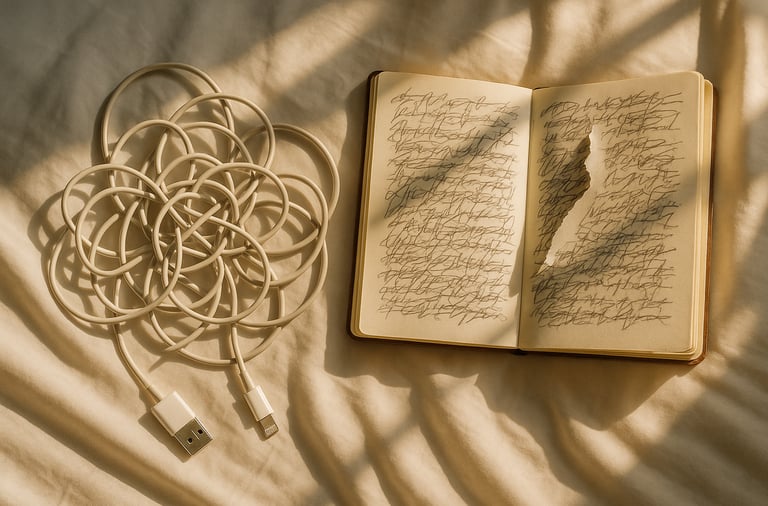

The Spiritual Reframe: What Love Looks Like with Elohim
There’s a love that doesn’t need to be chased. That doesn’t leave you guessing. That doesn’t make you beg to be chosen.
Elohim’s love is steady, present, and rooted in truth. “Perfect love casts out fear” (1 John 4:18). If what you're holding onto feels like fear, confusion, or chasing—pause. That’s not His design for you. His love anchors, not drowns.
Letting go isn’t losing love—it’s losing the illusion. And in return, gaining peace.
Practical Next Steps: Breaking the Bond
So how do you move forward?
Get honest: Ask, “Am I in love with this person, or the idea of them?”
Journal or reflect: Note how they made you feel vs. how they treated you.
Create distance: Emotional healing can’t happen if the wound is reopened daily.
Reattach to truth: Your worth isn’t dependent on their affection.
Seek safe love: Surround yourself with people who mirror God’s kind of love—patient, clear, secure.
And above all, remember this: you are not hard to love. But real love never feels like a war inside your soul.
Let’s not forget spiritual truth in all this. Elohim, the One who never leaves nor forsakes, reminds us that “perfect love casts out fear” (1 John 4:18). If the relationship you’re in (or obsessing over) is constantly filled with fear, anxiety, or insecurity—it’s not perfect love. It might not even be love at all.
So what now?
Start with honest reflection. Ask:
“Do I love this person for who they are now, or who I hope they’ll become?”
“If I wasn’t afraid of being alone, would I still want this?”
Consider journaling or talking to a therapist about your attachment style.
Lean into healing community—those who offer unconditional, consistent care.
And spiritually, begin reattaching your sense of worth and belonging to the One who says you are fearfully and wonderfully made (Psalm 139:14)—not to someone who can’t make up their mind.
You’re not crazy for still thinking about them. You’re human. But you can heal. The truth will set you free—not the fantasy, not the memory. The truth. And the truth is, you deserve love that doesn’t require you to suffer for it.


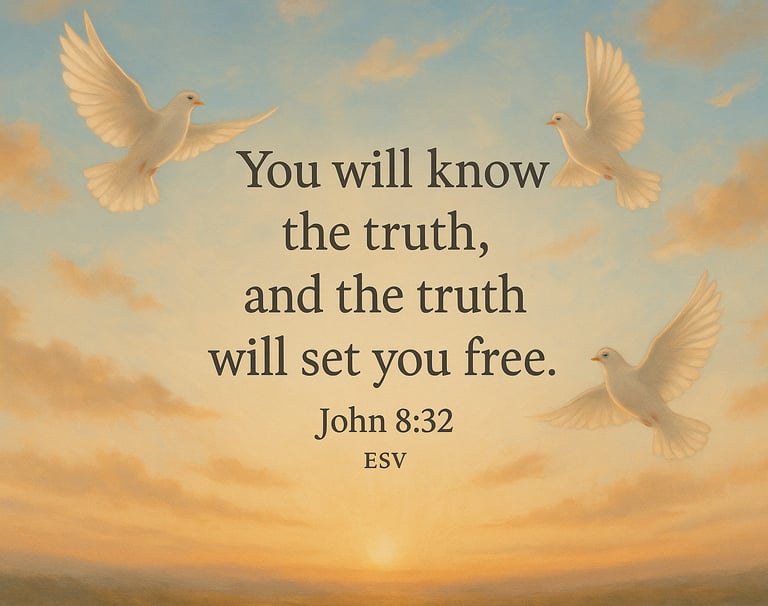

Explore
Your ultimate lifestyle hub for inspiration and tips.
Connect
Subscribe
© 2025. All rights reserved.
OnBlogz. Smart Living. Smarter Choices
Designed by ABC Global Solutions
